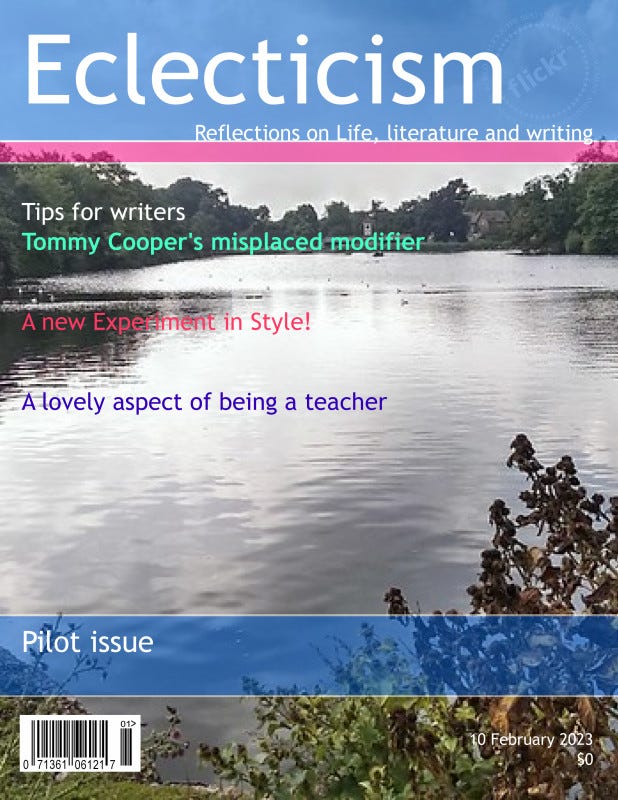Preamble
This is an experiment. I’ve written and collated several articles into one post. The alternatives would be one post a day for several days, or one of the articles each week for a few weeks. Which do you think you would prefer? Please leave a comment and, when you’ve read this, complete the poll.
Thank you so much.
…
Keep reading with a 7-day free trial
Subscribe to Eclecticism: Reflections on literature, writing and life to keep reading this post and get 7 days of free access to the full post archives.




